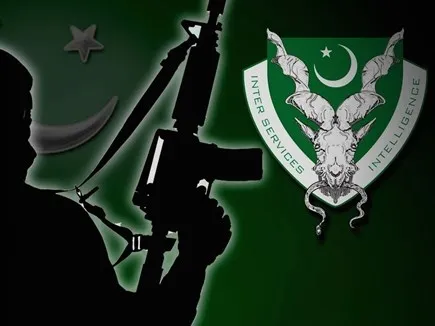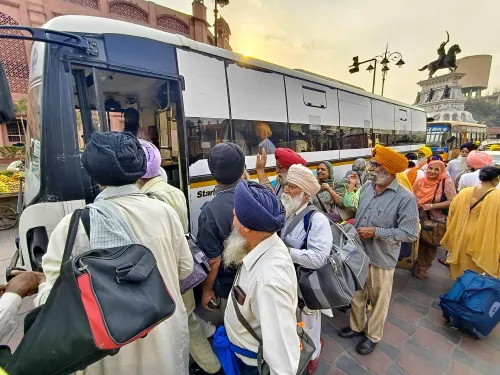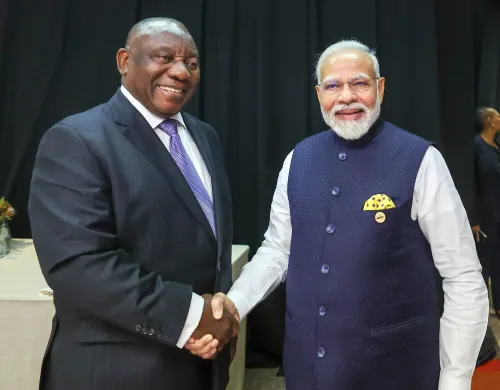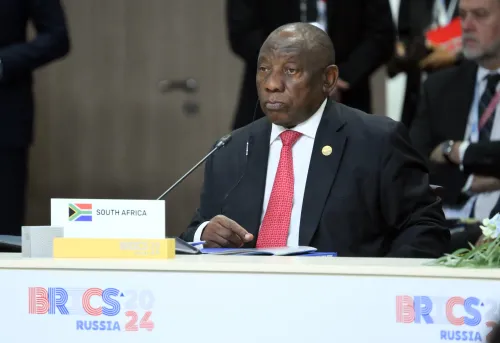Is Pakistan's ISI Supporting Drug Networks That Threaten South Asian Stability?

Synopsis
Key Takeaways
- Pakistan's ISI is implicated in supporting drug-trafficking networks.
- Bangladesh risks becoming a production hub for narcotics.
- Recent customs incidents indicate potential collusion.
- The agreement for visa-free entry raises strategic concerns.
- Regional stability is jeopardized by these developments.
Islamabad, Nov 15 (NationPress) The Inter-Services Intelligence (ISI) of Pakistan has been persistently implicated in supporting drug-trafficking syndicates throughout South Asia to finance covert operations. A recent report warns that an escalation of these networks into Bangladesh could have dire repercussions for regional stability.
The report suggests that if Bangladesh were to quietly evolve into a production center akin to Balochistan in Pakistan, it would not only jeopardize the internal stability of Dhaka but also the overarching security landscape of the entire subcontinent.
According to an article in Eurasia Review, General Sahir Shamshad Mirza, Chairman of the Joint Chiefs of Staff Committee of Pakistan, made a recent visit to Dhaka. Customs officials at Chittagong port intercepted 25 tons of poppy seeds from two containers that had been shipped from Pakistan on October 22, labeled falsely as bird feed, which concealed a significant import of a prohibited substance.
“This incident is more than just a standard smuggling operation or a minor breach of trade regulations. In light of Pakistan's increasing involvement—which includes the frequent visits of military personnel and the presence of militant-linked preachers in Bangladesh—the situation takes on a more concerning dimension. It raises a disturbing question: Is Bangladesh slowly transforming into Pakistan’s new strategic arena?” the report elaborated.
The findings also noted that shortly after taking office last year, the interim government led by Mohammad Yunus revoked the mandatory 100 percent physical inspection of imports from Pakistan under the pretext of facilitating business.
This swift decision prompts inquiries about potential collusion among customs or port officials. The historical ties of political sympathy and shared ideology between Jamaat and Pakistan are neither new nor concealed.
“The increasing frequency of delegations from Pakistan visiting Bangladesh over the last year narrates its own tale. Many of these visits, officially sanctioned, included discussions with Jamaat leaders, even private meetings at the residence of the party’s Ameer. The Pakistani High Commissioner in Dhaka has conducted numerous 'courtesy meetings' with Jamaat leaders, indicating that their relationship transcends conventional diplomacy,” the report emphasized.
“More significantly, under the Yunus administration, both nations reached an agreement to permit visa-free entry for holders of diplomatic and official passports. While this may seem like a generous gesture, many are skeptical, citing deeper strategic motives, especially given Pakistan's troubled history of supporting terrorism in Bangladesh.”
The shipment of poppy seeds, the rise of radical preachers in border regions, the subtle resurgence of Jamaat’s influence, and Pakistan’s renewed diplomatic engagement are interconnected phenomena; they signify a broader coordinated strategy.
“Bangladesh risks becoming a component of Pakistan’s regional agenda: to destabilize India’s eastern flank, finance extremism through narcotics, and revive the specter of religious nationalism under a new facade,” the report concluded.









